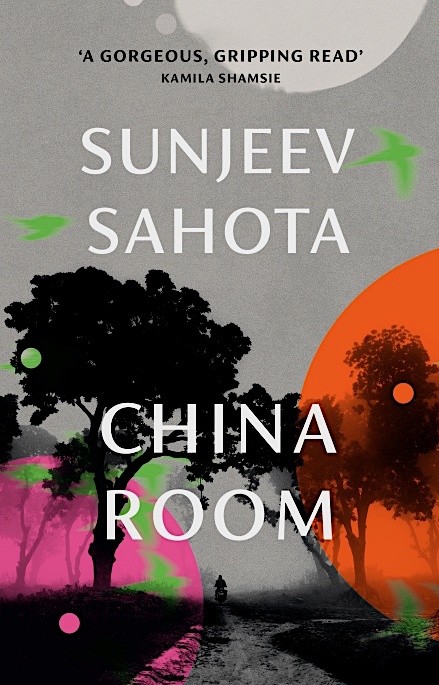China Room, Sunjeev Sahota’s third novel, is a familiar, ancestral tale: the story of Mehar, living in late 1929 in rural Punjab, is narrated alongside that of her unnamed descendant in 1999, who has grown up in England. Despite the hardships endured by the book's protagonists (arranged marriage and heroin withdrawal, respectively), it is a gentle, if not particularly gripping read. There is, however, a mystery to be solved, set up in the book's first line, when Mehar isn’t allowed to know which of the three brothers is her husband. Sahota explores this delicately, turning over and examining the emotional lives of all involved.
The novel is built on the classical lines of parallel narratives, where the past speaks to the present, and vice versa, but this is done with a lightness of touch. There are nice strands, such as when the statue of Krishna, torn down in Mehar’s lifetime, is rebuilt in her unnamed descendant’s time. The parallel subtly indicates the importance that is attached to religion and to religious objects, while highlighting how arbitrary and mutable these can be. The stories never really overlap, except when Mehar’s descendant catches snippets of her life, but even then, these scraps of information are often contradictory, even untrue. He lives in her house, sees the bars on her window, but has only a passing desire to learn about her.
 The subtlety of the links between past and present can be China Room’s downfall at times. When this device is deployed, it has the potential to feel a bit trite, and the reader expects the two lives to intersect, at least in part. However, the two protagonists, while they speak to each other’s struggles, pass one another with very little commentary. It feels like Sahota is missing a trick, not using one character to develop the other.
The subtlety of the links between past and present can be China Room’s downfall at times. When this device is deployed, it has the potential to feel a bit trite, and the reader expects the two lives to intersect, at least in part. However, the two protagonists, while they speak to each other’s struggles, pass one another with very little commentary. It feels like Sahota is missing a trick, not using one character to develop the other.
The narrative is based, at least in part, on the author’s own life. China Room recalls the family history of Sahota’s own family, although the specifics of this connection are unclear (tellingly, there is a sweet photo of what we can only assume is young Sahota held by his grandmother at the end of the book). The reader is left to wonder how much is fictionalised, how much autobiographical. The "present" story thread is actually also in the narrator’s past, albeit within his own timeline. His present creeps in at times, such as when the narrator describes the pity he feels, now, for his father’s hard work and suffering. His father’s is the story of a first-generation immigrant, faced with the financial and prejudicial pressures of 20th century Britain.
There are also flashes of a larger Indian history behind Mehar’s story, as the fight for independence gathers pace. 1929 marked the year in which the Indian National Congress passed the total independence resolution, mirrored by a reluctant acknowledgement from the English that India would be granted independence in the future. There are also rumblings of religious conflict when the statue of Krishna comes into play. These events crash into the book with tragic force.
China Room is very good at examining the trauma held in one family, whether it be personal or housed in a home, village, or country. Sahota seems to acknowledge that although we are not doomed to repeat the past, each subsequent generation feels a measure of the hardship that the last generation faced. This could be expressed more explicitly, but the novel is, on the whole, a well-developed story of two lives that touch one another in ways that that can never be clearly seen.
- China Room by Sunjeev Sahota (Harvill Secker, £16.99)
- More book reviews and features on theartsdesk















Add comment